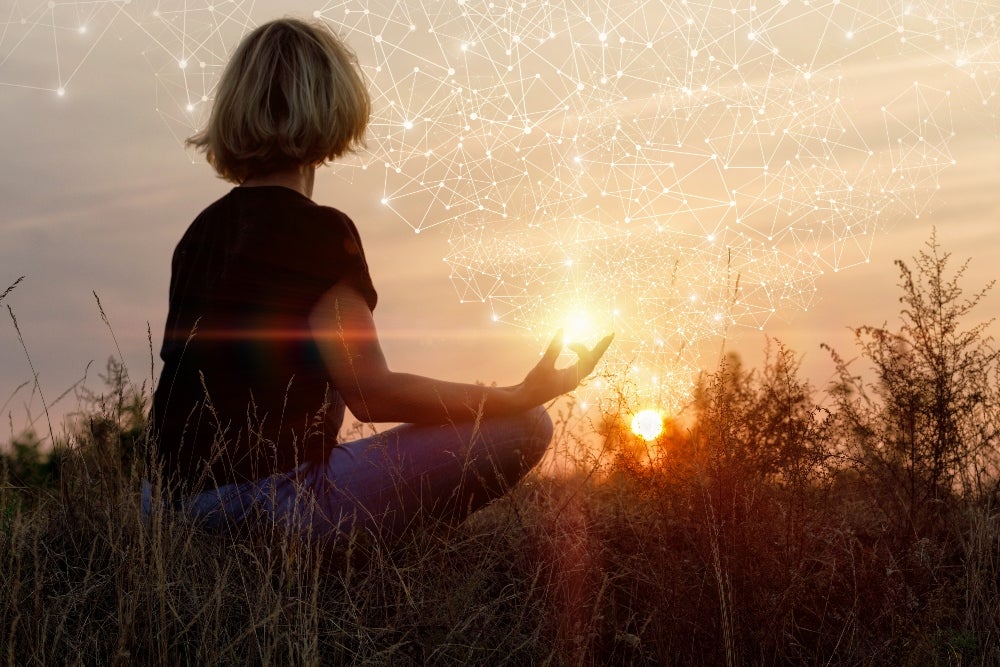Gratitude. Now that’s a topical word for this time of year. And one deserving of some attention.
At Boomi’s Out of This World virtual event, social media star Jay Shetty spoke about how connected we all are to one another and the importance of gratitude — even when we sometimes don’t realize the full impact. As an example, Shetty shared how he exchanged robes for business suits after serving three years in India as a Hindu monk.

As he began his job search, Shetty reached out to a former business school classmate he barely knew and asked for an introduction to his company. The person generously helped, and it was a small step for Shetty on the path to where he is today. Shetty, as you probably already know, has become a popular podcast host, life coach, and author of the New York Times bestseller “Think Like a Monk.” Shetty used that memory to highlight the potential of simple acts of kindness when we expect nothing in return. You know, the idea of paying it forward.
But it was the other message of Shetty’s story that caught my attention. The significance of gratitude.
“I recently sent him a note that said thank you, and I haven’t forgotten about this,” he recalled. “And we had a beautiful exchange.”
Shetty was a featured Out of This World guest in part because he’s one of the world’s most connected people. His online videos have been viewed more than 8 billion times, and 48 million people follow him on social media as he helps them make sense of an uncertain time and discover their purpose. That made him a perfect speaker because the Boomi Enterprise Platform enables organizations to connect everyone to everything – building richer relationships with their employees, customers, and partners.
In a wide-ranging conversation with Boomi Chief Revenue Officer Will Corkery, Shetty’s thoughts about being grateful were especially meaningful as we approach the holiday season. The idea of giving thanks and remembering what we’re grateful for, of course, is on everyone’s mind.
“Gratitude is one of the most over-talked-about things today and yet is still among one of the most misunderstood things in the world,” Shetty said. “That’s because it sounds really soft. It sounds really basic. We were all taught as kids to say ‘thank you.’ It’s always been part of our lives, but therefore we haven’t really learned to value and honor it. To me, gratitude is one of the deepest gifts you can give to someone and the most beautiful gift you can receive.”
What you get back is more than equal to what you give, he added. For instance, it can even improve your health.
“The science shows that when you’re present in gratitude, you can’t be anywhere else,” Shetty added. “If you’re having a grateful thought, you can’t worry at the same time. If you’re having a thankful thought, you can’t feel anxiety at the same time. Gratitude has been proven to boost your mood and your immunity.”
Shetty refers to the wealth of recent research exploring how feelings of gratitude can profoundly affect our mental and physical well-being. Studies have shown that practicing gratitude five minutes a day can make you 25% happier. A correlation has been demonstrated between gratitude and emotions such as optimism and joy and can ease symptoms of anxiety and depression. Also, there are indications that gratitude can be good medicine by lowering blood pressure, improving cholesterol levels, and even altering brain chemistry.
But what does it actually mean to practice gratitude in our everyday lives? More than you might think, Shetty said. It requires some effort to make it genuine and impactful for others.
“If we want to experience gratitude, we can’t just write it down,” he explained. “We have to express it, and that expression has to be personalized and specific. If gratitude is a gift, it has to be given away. It can’t be kept inside of us.”
He suggested that we should pick one person – a work colleague or someone in our personal lives. Think about why we value them. Then, reach out in-person or through a text, call, or email, and thank them for something they’ve done that’s memorable to us. Then do that for seven days.
“Gratitude is a skill, a muscle, something that needs to be practiced and needs to be developed,” Shetty added. “I promise that if you start expressing gratitude every day for seven days, it’s going to become part of your wiring. You’re going to begin to notice things that are worth being grateful for more than things that are worth complaining about.”
It’s even a way to find common ground in difficult relationships or ones that have become frayed for some reason. It can make a difference, Shetty said, because it all comes back to one simple thing.
The human need for connection.


 English
English 日本語
日本語